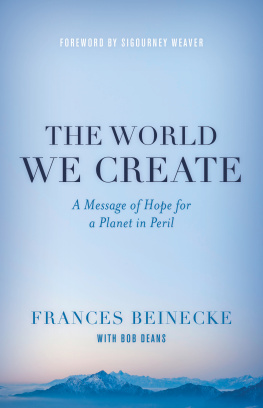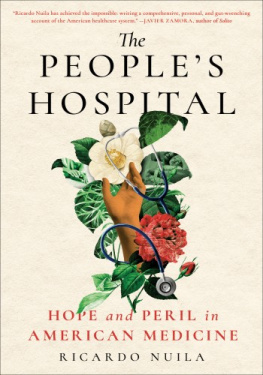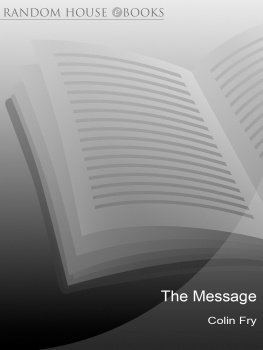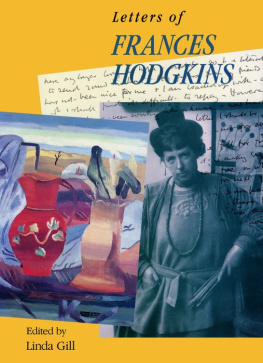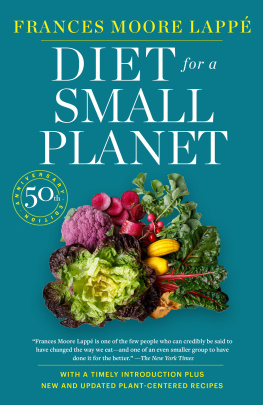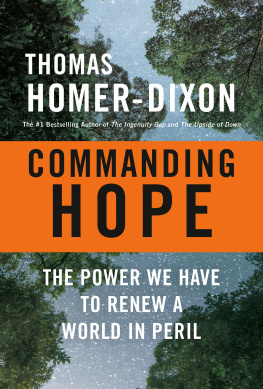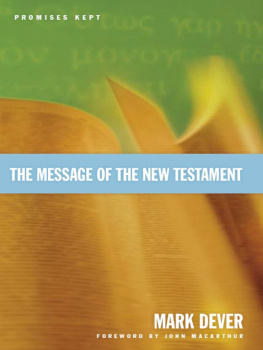Frances Beinecke - The World We Create: A Message of Hope for a Planet in Peril
Here you can read online Frances Beinecke - The World We Create: A Message of Hope for a Planet in Peril full text of the book (entire story) in english for free. Download pdf and epub, get meaning, cover and reviews about this ebook. year: 2014, publisher: Rowman & Littlefield, genre: Home and family. Description of the work, (preface) as well as reviews are available. Best literature library LitArk.com created for fans of good reading and offers a wide selection of genres:
Romance novel
Science fiction
Adventure
Detective
Science
History
Home and family
Prose
Art
Politics
Computer
Non-fiction
Religion
Business
Children
Humor
Choose a favorite category and find really read worthwhile books. Enjoy immersion in the world of imagination, feel the emotions of the characters or learn something new for yourself, make an fascinating discovery.
- Book:The World We Create: A Message of Hope for a Planet in Peril
- Author:
- Publisher:Rowman & Littlefield
- Genre:
- Year:2014
- Rating:3 / 5
- Favourites:Add to favourites
- Your mark:
- 60
- 1
- 2
- 3
- 4
- 5
The World We Create: A Message of Hope for a Planet in Peril: summary, description and annotation
We offer to read an annotation, description, summary or preface (depends on what the author of the book "The World We Create: A Message of Hope for a Planet in Peril" wrote himself). If you haven't found the necessary information about the book — write in the comments, we will try to find it.
The World We Create: A Message of Hope for a Planet in Peril — read online for free the complete book (whole text) full work
Below is the text of the book, divided by pages. System saving the place of the last page read, allows you to conveniently read the book "The World We Create: A Message of Hope for a Planet in Peril" online for free, without having to search again every time where you left off. Put a bookmark, and you can go to the page where you finished reading at any time.
Font size:
Interval:
Bookmark:
The World We Create
The World We Create
A Message of Hope for
a Planet in Peril
Frances Beinecke
with Bob Deans
Foreword by Sigourney Weaver
ROWMAN & LITTLEFIELD
Lanham Boulder New York London
Published by Rowman & Littlefield
A wholly owned subsidiary of The Rowman & Littlefield Publishing Group, Inc.
4501 Forbes Boulevard, Suite 200, Lanham, Maryland 20706
www.rowman.com
16 Carlisle Street, London W1D 3BT, United Kingdom
Copyright 2014 by Frances Beinecke
All rights reserved. No part of this book may be reproduced in any form or by any electronic or mechanical means, including information storage and retrieval systems, without written permission from the publisher, except by a reviewer who may quote passages in a review.
British Library Cataloguing in Publication Information Available
Library of Congress Cataloging-in-Publication Data Available
Beinecke, Frances
The world we create : A message of hope for a planet in peril / by Frances Beinecke, with Bob Deans.
p. cm.
Includes index.
ISBN 978-1-4422-3637-0 (cloth : alk. paper) -- ISBN 978-1-4422-3638-7 (electronic)
 TM The paper used in this publication meets the minimum requirements of American National Standard for Information Sciences Permanence of Paper for Printed Library Materials, ANSI/NISO Z39.48-1992.
TM The paper used in this publication meets the minimum requirements of American National Standard for Information Sciences Permanence of Paper for Printed Library Materials, ANSI/NISO Z39.48-1992.
Printed in the United States of America
To my three daughters, Carrie, Mary, and Lizzie, who inspire me each day, and to their generation's environmental future.
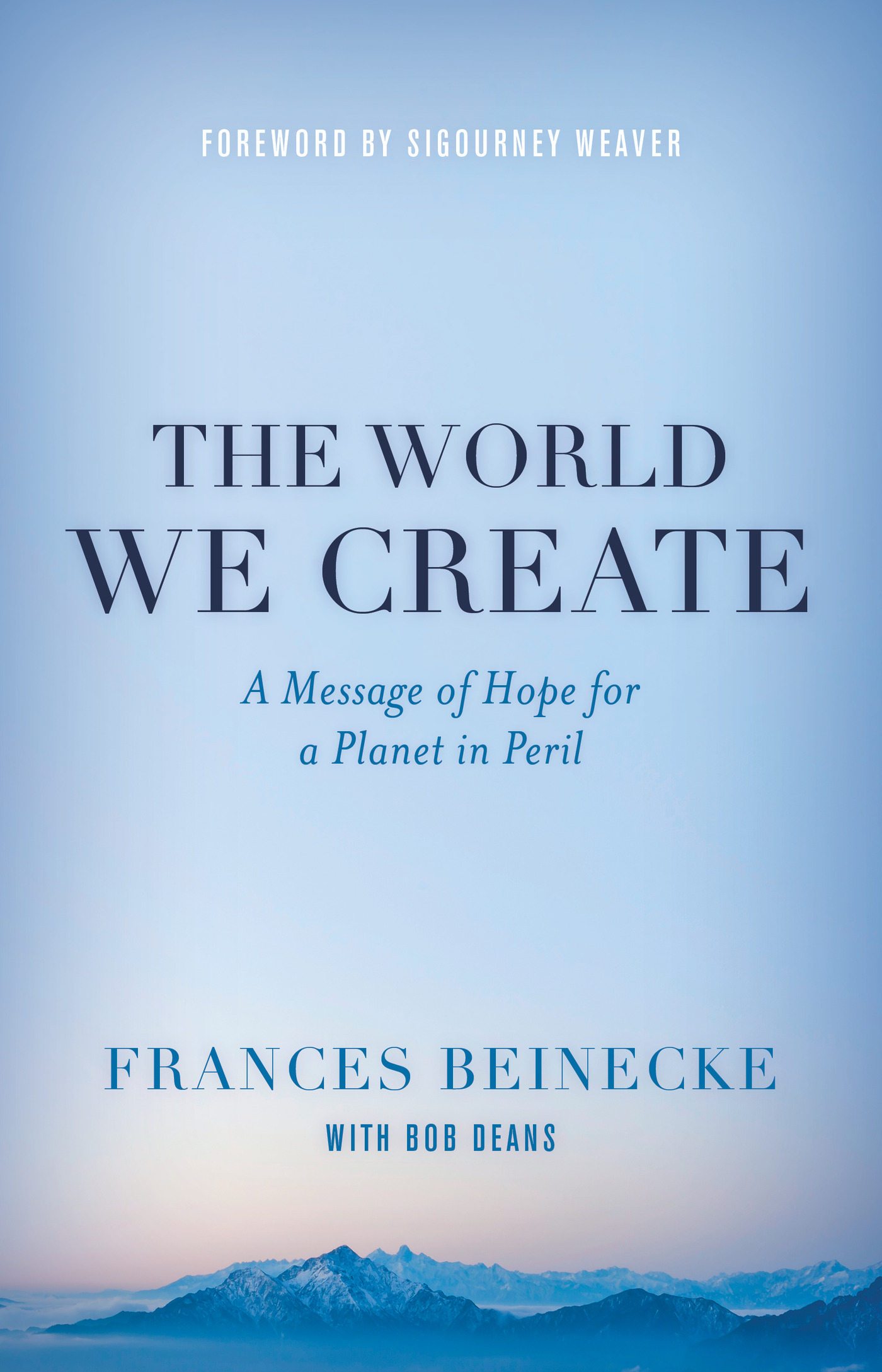
By Sigourney Weaver
One summer day several decades ago in the Adirondack Mountains, my good friend and neighbor Frances Beinecke dropped by our camp to ask me to help her dismantle the work of some beavers. That may seem an unusual request, but Frances had her reasons. The beavers had erected an imposing dam, stretching twelve feet across the southern end of a wild pond nearby, and the tall pines and cedars along the water's edge were gradually being submerged and beginning to die. If left to stand, the beavers' handiwork would disrupt the entire balance of life in the pond and transform it into a ghostly, sunken forest called a "pughole."
Frances and I arrived and admired the dam. An engineering marvel in native woods, it loomed several feet above the water level, large branches and assorted sticks solidly mortared together with mud. There were two sturdy beaver lodges nearby and a shoreline dotted with freshly gnawed stumps and peeled stickssure signs of beavers very much in residence. So, keeping an ear out for the slap of an aggrieved beaver's tail, Frances and I rolled up our sleeves and pant legs and waded in.
It wasn't easy work. We rolled away heavy, wet logs and matted debris, pulling with all our combined might in several directions. Slowly, we were able to dislodge enough mud and matter to start to break apart the dam. When the water finally gushed free, it poured over us in such a deluge that we were literally knocked off our feet. Drenched and laughing, we helped each other up and pared away at the remains of the dam with our bare hands. By the time we finished, the natural flow of the pond had been restored and the water was rapidly draining away from the base of the rescued trees.
I have often thought of that day as I've watched Frances roll up her sleeves and wade into high-stakes debates with corporate polluters and intransigent legislators, grappling to dismantle the rigid systems of prejudice and profit mortared together by these other diligent mammals. The work has been much more daunting than our day at the pond.
For more than four decades, Frances has devoted herself to safeguarding the natural systems that connect each living thing to all the rest in the great web that ties even the smallest among us to the larger world that sustains us all.
Relying on the same natural impulse that led her to save those Adirondack trees, shes risen from an intern to president of the Natural Resources Defense Council, the most effective environmental advocacy group anywhere. We need that advocacy now more than ever because the natural systems we rely on are facing unprecedented threats.
None is more all-encompassing than our addiction to the use of fossil fuels. That dependence is imposing mounting costs on our environment and putting it at needless and growing risk, across our country and around the world. We can wring our collective hands in despair, or we can summon the courage to change. In this book, Frances calls on us to stand up for change. She calls on us to act. More than that, she shows us how. She delivers a message of hope.
There are choices we can make, she tells us, options we can choose, to create a very different kind of future for ourselves and our children. For Frances, it's never been enough to accept the world as it is. It is up to each of us to make our own contribution to leaving this world a better place for our children than what was given to us. That's what this book is all about.
"Standing together, a nation united around the common goals of safeguarding our children's future, reinvigorating the U.S. economy and making our country more secure," she writes, "we can lay out a very different vision of the kind of world we want to create. Then we must unleash the movement required to make it succeed."
Frances and I met in high school, a time when the civil rights movement, the quest for gender equality, and the war in Vietnam taught us that democracy is not a spectator sport. Frances was determined to participate.
It was always clear she was going to be a conservationist. There were many different pathways, though, open to her.
She could have followed in the Rachel Carson mold, writing about the environment and staying clear of the political fray. She might have signed on with a local nature conservancy and left her mark that way.
Instead, she chose a role on the national stage, articulating a vision for a brighter future, laying out a plan for getting there, and then working to make sure her NRDC colleagues have the tools they need to help get it done.
At every step along that journey, shes been opposed by corporate polluters. She's come up against the bitter partisan divisions that have paralyzed our national government on so many levels. And she's struggled to gain the attention of an increasingly distracted public that sometimes appears not to care when, in truth, there are times we just can't bear to look.
Standing up to some of the most profitable and influential industries in history would take its toll on the best of us. Dealing with the U.S. Congress can be frustrating enough to make anyone throw up their hands. And competing for the public's attention in the era of the 140-character twit-bit, the 24-hour news cycle, and the latest fleeting Internet craze can seem like an exercise in abject futility.
Frances, though, has done all of that and managed to stay true to her vision. There just isn't any part of her that knows how to give up. She's remained, through it all, inspirationally optimistic, not only about the goals she has made her life's work but also about the fate of our country writ large.
As an actor, I get to tell stories that explore different issues. I'm still learning, though, from Frances, how to stand and deliver hard truths to skeptics.
Not long ago, I accompanied her on a visit to the U.S. Capitol. We met with members of Congress to discuss the way we're damaging our oceans with the carbon pollution from burning fossil fuels. We met with members who were so adamantly opposed to our point of view that staffers admonished us not to so much as utter the words "climate change" in their presence.
Next pageFont size:
Interval:
Bookmark:
Similar books «The World We Create: A Message of Hope for a Planet in Peril»
Look at similar books to The World We Create: A Message of Hope for a Planet in Peril. We have selected literature similar in name and meaning in the hope of providing readers with more options to find new, interesting, not yet read works.
Discussion, reviews of the book The World We Create: A Message of Hope for a Planet in Peril and just readers' own opinions. Leave your comments, write what you think about the work, its meaning or the main characters. Specify what exactly you liked and what you didn't like, and why you think so.

